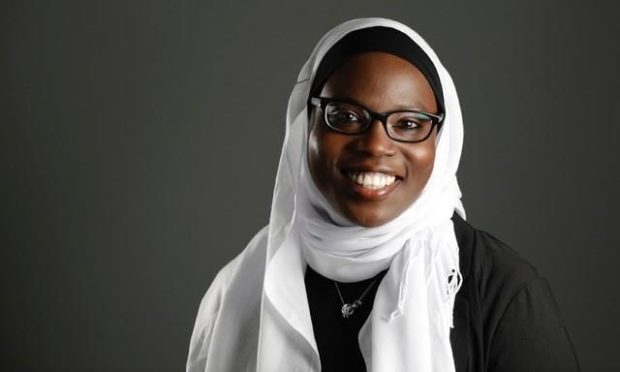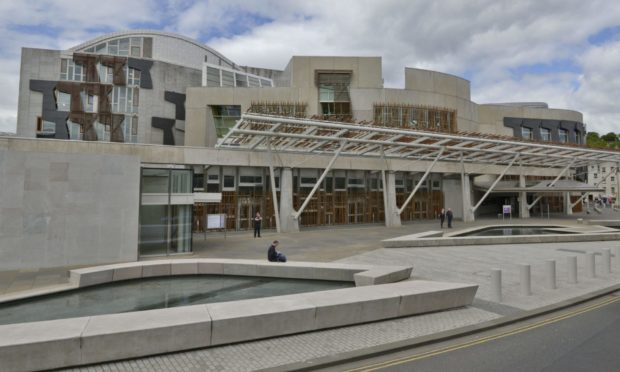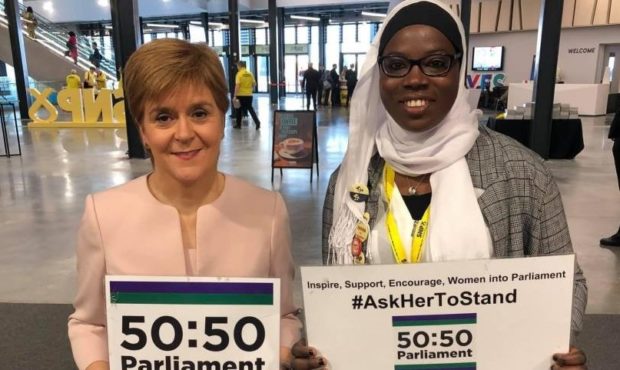“I don’t think there’s anything controversial about trying to make parliament more inclusive,” Fatima Joji says.
The Nigerian-Scot, from Westhill, Aberdeenshire, is excited about her position topping the SNP’s north-east regional list for the Scottish Parliament elections in May.
But she has spoken out against those who “seem to think that I have been somehow parachuted into what they see as being a gravy train position simply because I am a BAME woman”.
It comes after the party agreed a new mechanism of putting either BAME (Black, Asian and Minority Ethnic) or disabled candidates on the top of the eight SNP regional lists.
The move followed a row over the leaking of legal advice, considered by the SNP’s national executive committee, which suggested it could end up being contested.
I see it as a good thing and I’m not thinking much about the people who don’t understand the need for inclusion.”
Fatima Joji
“I wish we didn’t need mechanisms like this but, I have to say, a mechanism like this is really exciting and we’ve actually had interest from other parties and even other countries, such as Germany and Ireland, who have shown an interest and are really praising this policy mechanism,” the 29-year-old says.
“Sometimes we are going to have to introduce these measures when nothing else is working.
“The people who have an issue with it are the ones who want the status quo to remain, in my eyes.
“They’re the people who are less tolerant. In the north-east, if this mechanism wasn’t included, our first three would have been men.
“Sadly, mechanisms like this are needed just now and I really hope people see the benefit of having these mechanisms for the benefit of our society.
“I see it as a good thing and I’m not thinking much about the people who don’t understand the need for inclusion.”
‘A failure of all of us’
Holyrood has only had a total of four BAME members since the creation of the Scottish Parliament in 1999 – all of them men from Scots-Pakistani heritage.
One of the four – Justice Secretary Humza Yousaf – said last year that a record of “no black MSP ever, no female BAME MSP ever” was “frankly a failure of all of us, regardless of party”.
No Black MSP ever, no female BAME MSP ever. Outwith SNP & Labour no other Party has ever had a non-White MSP elected in 20yrs of devolution. All 4 BAME MSPs elected have been Scot-Pakistani Males.
This is a responsibility & frankly a failure, of all of us, regardless of Party. https://t.co/zotNqhQXtE
— Humza Yousaf (@HumzaYousaf) June 3, 2020
Ms Joji, who works as a caseworker for SNP MP Richard Thomson, was first inspired to enter the world of politics after being “frustrated at the lack of progress and the amount of people being left behind in terms of equalities and decision-making”.
After being educated at both Elrick Primary and Westhill Academy, with some time in between at a boarding school in Nigeria, the SNP activist studied journalism at Robert Gordon University in Aberdeen, but it was politics where she believed she could enact the most change.
She says: “We’ve had 21 years of devolution, coming up to 22, and we’ve only had three BAME MSPs, all of them male, none of them women and none of them black, either.
“I do understand how significant it would be if I’m elected as the first black Muslim – visibly Muslim woman as well – and I understand the amount of responsibility that would potentially come with and criticism possibly because people will be looking for reasons why someone shouldn’t be elected rather than reasons why they should.
“If you’re talking about what politics actually does, which is decision-making, policy implementation and hopefully changing people’s lives for the better, then of course it needs to include as many of society’s voices as it can.
“When you’re making policies and decisions and you don’t have these voices present at the table to account for that or to make sure such impacts are not overlooked then of course you’re going to produce flawed policies, of course you’re going to exclude some people from the benefits of these policies because their input has not been recognised.
“That’s why it’s important to not just have the best people but the best aspects from all of society.”
Online abuse
Ms Joji has previously said how the “colour of my skin and the fact I am a visible Muslim already singles me out for abuse”, admitting it is the reason she chose not to stand in the 2016 Holyrood election.
She is a volunteer director at 50:50 Parliament, a cross-party campaign to achieve gender equality in the House of Commons.
As part of her work, Ms Joji has found online abuse is a “major deterrent” in putting women off standing for elected office.
The John Smith Centre in Glasgow, which carries out research into politics and public life, also cites online abuse as the “single biggest factor” mentioned by women.
The SNP candidate says: “I hate to say it but I just knew it was coming and I had to brace myself.
“It shouldn’t be part of the job but you just know it’s coming.
“Building up that support network is really important. If I didn’t have the support network to fall back on when I encounter these comments then I don’t think I would have stayed because I don’t think anything is worth your mental health and wellbeing.
It is still always going to be at the back of my mind and it is still a reason why people aren’t getting involved.”
Fatima Joji
“It’s really important for the authorities to ensure people are protected in a way and looked out for.
“I don’t think I’ve seen the last of it unfortunately but I do hope things get better in future and I see less of it.”
She continues: “It’s the reason why I didn’t stand earlier, even though I had every intention of doing so because I have been thinking about it since 2016.
“It is still always going to be at the back of my mind and it is still a reason why people aren’t getting involved.
“I do hope things do get better and I do think Scotland is moving in the right direction, towards inclusion.
“I hope that really addresses the amount of abuse we get online and makes society more tolerant and inclusive.”
In terms of her priorities, Ms Joji says, along with independence, she is “really interested in Universal Basic Income” which she studied during her postgraduate degree in international development.
At its simplest, UBI is a set payment for every citizen from the government, regardless of whether they are considered rich or poor, and would be a “great starting point to address a lot of the inequalities we see in society”, the prospective MSP claims.
In the Covid-19 pandemic era, Ms Joj says it will be important to look at how the country responds to a national crisis in the future.
She adds: “The pandemic has shown how Scotland and England see things differently and respond to circumstances differently.
“It has exposed a lot and is an opportunity to reflect and build back better.”


